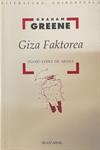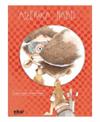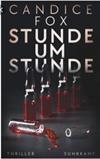
Wind in the Willows (Wordsworth Collection)
by Kenneth Grahame | Literature & Fiction | This book has not been rated.
ISBN: 1853260177 Global Overview for this book
ISBN: 1853260177 Global Overview for this book
1 journaler for this copy...
Pre-numbered label used for registration.
My grandmother's cousin gave me this copy of the book. I removed her dedication page and tucked it into our other copy before registering this. The book still has Sylvia's Christmas wrapping paper tucked around it. I have never seen its cover.
Journal Entry 3 by jinnayah at U Of M - Angell Hall in Ann Arbor, Michigan USA on Saturday, April 17, 2004
Released on Saturday, April 17, 2004 at U of M Angell Hall "Fishbowl" in Ann Arbor, Michigan USA.
"Good morning," I said to a spry-looking old man with a backpack who sat reading the UMich humor newspaper on a bench outside the Fishbowl. "Would you like a book?" I held out Wind in the Willows and Something Happened!, by Joseph Heller.
"No, thanks," he said. "I've got my own."
I left the books on the bench next to him for whomever.
Two minutes later I walked back into that hall, and the man gestured to me, asking more about the books. I explained BookCrossing to him; he looked at me, not at the label. He thanked me for the verbal explanation and apologized for being rude (it hadn't bothered me) at my generous offer.
Then we got to talking. It was a lovely conversation. He graduated from the UM Journalism School in 1957, he told me. Recently retired, he still comes back to Ann Arbor every Saturday to do research. "That's my recreation," he said. "I have a son-in-law who goes fishing: this is what I do." In journalism school, he said, he had been taught that to communicate one must write at a 12-year-old reading level, because that is the average reading ability of an American. My face fell, but he went on, "And so I fit in, because that was my writing level."
He is a slow reader, he told me. (We never exchanged names. I like these serendipitous encounters. They remind me how full of small wonders this world is.) "I've been reading a book that was recommended to me 45 years ago. It's by John Hersey, the Pulitzer Prize-winner for Hiroshima. I'm reading a work of fiction called White Lotus. At first it didn't really grab me, the first 50 pages or so I wasn't sure why I bothered. But then I started to get it more, and I got behind it and have been reading into the book more than reading out ofit. I'm about two-thirds through now. I'm not trying to finish it: I'm trying to absorb it."
I am just reading Michael Ende's Momo, a book all about appreciating time and beauty, with a title character who listens to people by going behind their words to their thoughts and their "real voices." I loved hearing this man's reading style.
"So I started making a list of words that Hersey uses that I didn't know, or words that he uses in a way I don't know. There's maybe 500 words he knows that I don't, but I know one word that he misused twice. How often have you heard people use 'enormity' to refer to size?"
"It's the only way I'd think to use it," I said.
"Look it up: it means 'wicked.' For size, the word is enormousness."
I went to the OED once I got home. Sure enough:
ENORMITY
1. Divergence from a normal standard or type; abnormality, irregularity. Obs. or arch.
2. Deviation from moral or legal rectitude. In later use influenced by ENORMOUS 3: Extreme or monstrous wickedness.
3. Excess in magnitude; hugeness, vastness. Obs.; recent examples might perh. be found, but the use is now regarded as incorrect.
Lastly, this older man and I spoke about modes of communication. He uses his computer as a typewriter. I can obviously communicate by state-of-the-art technologies; he communicates with a postage stamp and a piece of paper, he said. I told him I do that as well: different media of communication serve different purposes, and I write letters to have wonderfully unhurried conversations.
"But if the computer and the Internet came first, and then the telephone, which would be considered the more advanced technology?" he asked. "What does email do that the telegraph couldn't do in the mid-ninteenth century?" I suggested one can send pictures now, but he said that was available by 1925. I acknowledged the modes of communication are similar.
"So what did Alexander Graham Bell give us that the telegraph couldn't?" he persisted.
"The voice," I said.
"He let people talk together," he agreed.
Of course, this is new. BookCrossing is new. This time-delayed virtual bookclub, this reaching out of thousands of people to one another through a worldwide free library, this could only have been facilitated by the Web. The Web is a new means of storing and accessing information, if email is not. I forgot to tell him that. I am grateful for that new technology.
"My day is over," the old man smiled. "You have maybe 50 years left?"
"I hope so!"
"Well, keep it up. You're doing a fine job so far," he said to me. "Nice talking to you."
He did not take a book.
"Good morning," I said to a spry-looking old man with a backpack who sat reading the UMich humor newspaper on a bench outside the Fishbowl. "Would you like a book?" I held out Wind in the Willows and Something Happened!, by Joseph Heller.
"No, thanks," he said. "I've got my own."
I left the books on the bench next to him for whomever.
Two minutes later I walked back into that hall, and the man gestured to me, asking more about the books. I explained BookCrossing to him; he looked at me, not at the label. He thanked me for the verbal explanation and apologized for being rude (it hadn't bothered me) at my generous offer.
Then we got to talking. It was a lovely conversation. He graduated from the UM Journalism School in 1957, he told me. Recently retired, he still comes back to Ann Arbor every Saturday to do research. "That's my recreation," he said. "I have a son-in-law who goes fishing: this is what I do." In journalism school, he said, he had been taught that to communicate one must write at a 12-year-old reading level, because that is the average reading ability of an American. My face fell, but he went on, "And so I fit in, because that was my writing level."
He is a slow reader, he told me. (We never exchanged names. I like these serendipitous encounters. They remind me how full of small wonders this world is.) "I've been reading a book that was recommended to me 45 years ago. It's by John Hersey, the Pulitzer Prize-winner for Hiroshima. I'm reading a work of fiction called White Lotus. At first it didn't really grab me, the first 50 pages or so I wasn't sure why I bothered. But then I started to get it more, and I got behind it and have been reading into the book more than reading out ofit. I'm about two-thirds through now. I'm not trying to finish it: I'm trying to absorb it."
I am just reading Michael Ende's Momo, a book all about appreciating time and beauty, with a title character who listens to people by going behind their words to their thoughts and their "real voices." I loved hearing this man's reading style.
"So I started making a list of words that Hersey uses that I didn't know, or words that he uses in a way I don't know. There's maybe 500 words he knows that I don't, but I know one word that he misused twice. How often have you heard people use 'enormity' to refer to size?"
"It's the only way I'd think to use it," I said.
"Look it up: it means 'wicked.' For size, the word is enormousness."
I went to the OED once I got home. Sure enough:
ENORMITY
1. Divergence from a normal standard or type; abnormality, irregularity. Obs. or arch.
2. Deviation from moral or legal rectitude. In later use influenced by ENORMOUS 3: Extreme or monstrous wickedness.
3. Excess in magnitude; hugeness, vastness. Obs.; recent examples might perh. be found, but the use is now regarded as incorrect.
Lastly, this older man and I spoke about modes of communication. He uses his computer as a typewriter. I can obviously communicate by state-of-the-art technologies; he communicates with a postage stamp and a piece of paper, he said. I told him I do that as well: different media of communication serve different purposes, and I write letters to have wonderfully unhurried conversations.
"But if the computer and the Internet came first, and then the telephone, which would be considered the more advanced technology?" he asked. "What does email do that the telegraph couldn't do in the mid-ninteenth century?" I suggested one can send pictures now, but he said that was available by 1925. I acknowledged the modes of communication are similar.
"So what did Alexander Graham Bell give us that the telegraph couldn't?" he persisted.
"The voice," I said.
"He let people talk together," he agreed.
Of course, this is new. BookCrossing is new. This time-delayed virtual bookclub, this reaching out of thousands of people to one another through a worldwide free library, this could only have been facilitated by the Web. The Web is a new means of storing and accessing information, if email is not. I forgot to tell him that. I am grateful for that new technology.
"My day is over," the old man smiled. "You have maybe 50 years left?"
"I hope so!"
"Well, keep it up. You're doing a fine job so far," he said to me. "Nice talking to you."
He did not take a book.
 This Book is Currently in the Wild!
This Book is Currently in the Wild!






